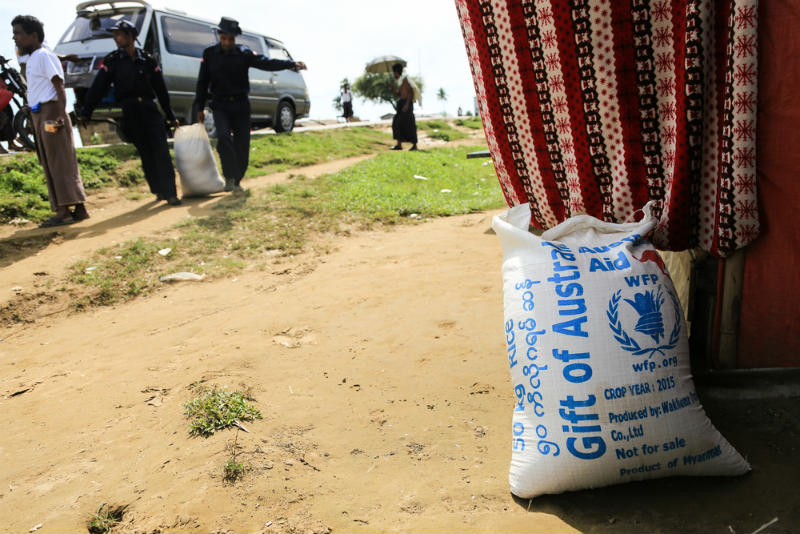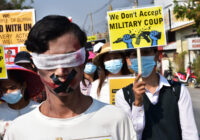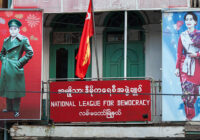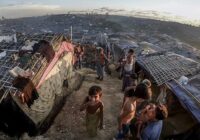The ongoing religious tension fueled by extremism may become a substantial threat to Myanmar’s democracy.
With a new parliament sworn in and the date for selecting a new president fast approaching, Myanmar’s National League for Democracy (NLD) is now tasked with laying the foundation for the country’s democratic development. At the heart of this challenge lies curbing religious extremism and integrating the Muslim Rohingya minority into Burmese society.
Budding Buddhist Extremism
In the last few years, Buddhist extremism has gained momentum in Myanmar. Ma Ba Tha, an anti-Muslim group of Buddhist monks, in many ways surpasses its predecessor, the 969 Movement. If the 969 Movement was a loose network of anti-Muslim monks, Ma Ba Tha is a well-structured organization with regional chapters and a TV channel to broadcast its sermons. Experts in politics, law and technology offer professional assistance for the group’s activities, such as drafting bills that ban inter-religious marriage and require government approval for religious conversion, as well as fiercely lobbying until they are passed into law. Ma Ba Tha also maintains close relationships with government and military officials who attend the group’s events and openly defend hate speech against Muslims.
A more worrisome indication of the group’s influence, however, is that Aung San Suu Kyi and the NLD are willing to yield to its demands. Leading up to the 2015 election, the party canceled its event after dozens of monks protested against scheduled speeches of Muslim speakers. Members of the NLD admit that the party intentionally did not nominate Muslim candidates in order to avoid a possible backlash from hardline Buddhists.
The rhetoric of Ma Ba Tha does not differ too much from that of other extremists elsewhere in the world. The group’s sermons provoke fear of Muslims by characterizing Islam as an existential threat to Myanmar, claiming that Muslims are “mad dogs” and “want to kill [Buddhists] with swords.” The group also attacks its critics through an “us vs them” dichotomy, using the term “Islamist traitors.” Human rights group members have received death threats from Ma Ba Tha for criticizing discriminatory legislations, and the group accuses the NLD and Suu Kyi of being Islamist.
It is unlikely that Burmese people are aware of the mismatch between this anti-pluralist message and the nation’s progress toward democracy. A 2014 survey shows that the majority of the public has yet to associate democracy with equality, and 35% think that unpopular political parties should not be allowed to hold meetings. An even greater number—41%—said they would sever ties with friends who joined unpopular parties.
Fomenting Animosity
If we think about how fear and hatred can make people give up liberty and reject equality even in advanced democracies, the fomenting of animosity in the fledgling democracy of Myanmar comes as a considerable concern.
Further, violence on one side often sows seeds of radicalization on the other. Currently, the Rohingya—who are segregated, denied citizenship and subject to state-sponsored violence—do not have any means to make their voices heard. But it is unrealistic to expect them to remain forever victimized and stigmatized; the long, still-expanding list of worldwide riots, wars and terrorist activities motivated by ethnic and religious tensions suggests otherwise.
Even though no organized resistance occurs, small incidents—whether inspired or coordinated—can lead to largescale violence. This has already happened in 2012, when a rape and murder of a Buddhist woman, allegedly by three Muslim men, snowballed into sectarian violence that resulted in more than 200 deaths and a mass displacement of 140,000 people—125,000 of whom were Muslim.
The presence of fearmongering agitators is an obstacle to development as well, since it distracts both the government and the people from other important issues. Myanmar has multiple social and economic maladies to deal with—from short life expectancy and low education level to stagnating labor productivity and crippled infrastructure. Political reform and ethnic reconciliation are two other long-term projects that the new government should embark on.
Worse still, in the process of tackling these issues, the NLD has to negotiate with the military, which still occupies a quarter of the seats in parliament and controls key industrial resources. In such a situation when the government needs to shore up maximum effort and public support, escalating ethnic tensions will only drain valuable resources.
Inter-Religious Peace
Of course, a great number of monks have opposed military rule and called for inter-religious peace. But many of them have lost ground due to arrests, exile and criticism from within the clergy for not being “true Buddhists.” Only too aware of this fact, extremists try to recruit these monks by offering money and support. In fact, when even leaders like Suu Kyi, beloved and honored home and abroad, tell people not to “exaggerate” the Rohingya problem, there are not many who can stand up and carry the burden of openly denouncing violence against the religious minority.
It may have been partially inevitable that Suu Kyi and the NLD refrained from speaking on the Rohingya issue, since winning a majority in parliament was the utmost priority until the election. But such a position should only be a temporary political strategy. Continued apathy toward systemic violence and yielding to the demands of groups like Ma Ba Tha give the wrong signal to the public that certain religious or ethnic groups deserve alienation and subjugation.
An NLD leader once said that the party has many urgent tasks to prioritize over the Rohingya problem, such as “peace, the peaceful transition of power, economic development and constitutional reform.” However, something that NLD leaders are overlooking is the potential danger that racial tension tangled with religious extremism poses to Myanmar’s development. Although the problem is not something that can be solved in a short period of time, the government should put all of its effort into making sure that the current humanitarian crisis of the Rohingya does not evolve into a substantial obstacle to the country’s future.
The views expressed in this article are the author’s own and do not necessarily reflect Fair Observer’s editorial policy.
Photo Credit: Suphapong Eiamvorasombat / Shutterstock.com
 We bring you perspectives from around the world. Help us to inform and educate. Your donation is tax-deductible. Join over 400 people to become a donor or you could choose to be a sponsor.
We bring you perspectives from around the world. Help us to inform and educate. Your donation is tax-deductible. Join over 400 people to become a donor or you could choose to be a sponsor.
Support Fair Observer
We rely on your support for our independence, diversity and quality.
For more than 10 years, Fair Observer has been free, fair and independent. No billionaire owns us, no advertisers control us. We are a reader-supported nonprofit. Unlike many other publications, we keep our content free for readers regardless of where they live or whether they can afford to pay. We have no paywalls and no ads.
In the post-truth era of fake news, echo chambers and filter bubbles, we publish a plurality of perspectives from around the world. Anyone can publish with us, but everyone goes through a rigorous editorial process. So, you get fact-checked, well-reasoned content instead of noise.
We publish 2,500+ voices from 90+ countries. We also conduct education and training programs
on subjects ranging from digital media and journalism to writing and critical thinking. This
doesn’t come cheap. Servers, editors, trainers and web developers cost
money.
Please consider supporting us on a regular basis as a recurring donor or a
sustaining member.
Will you support FO’s journalism?
We rely on your support for our independence, diversity and quality.







